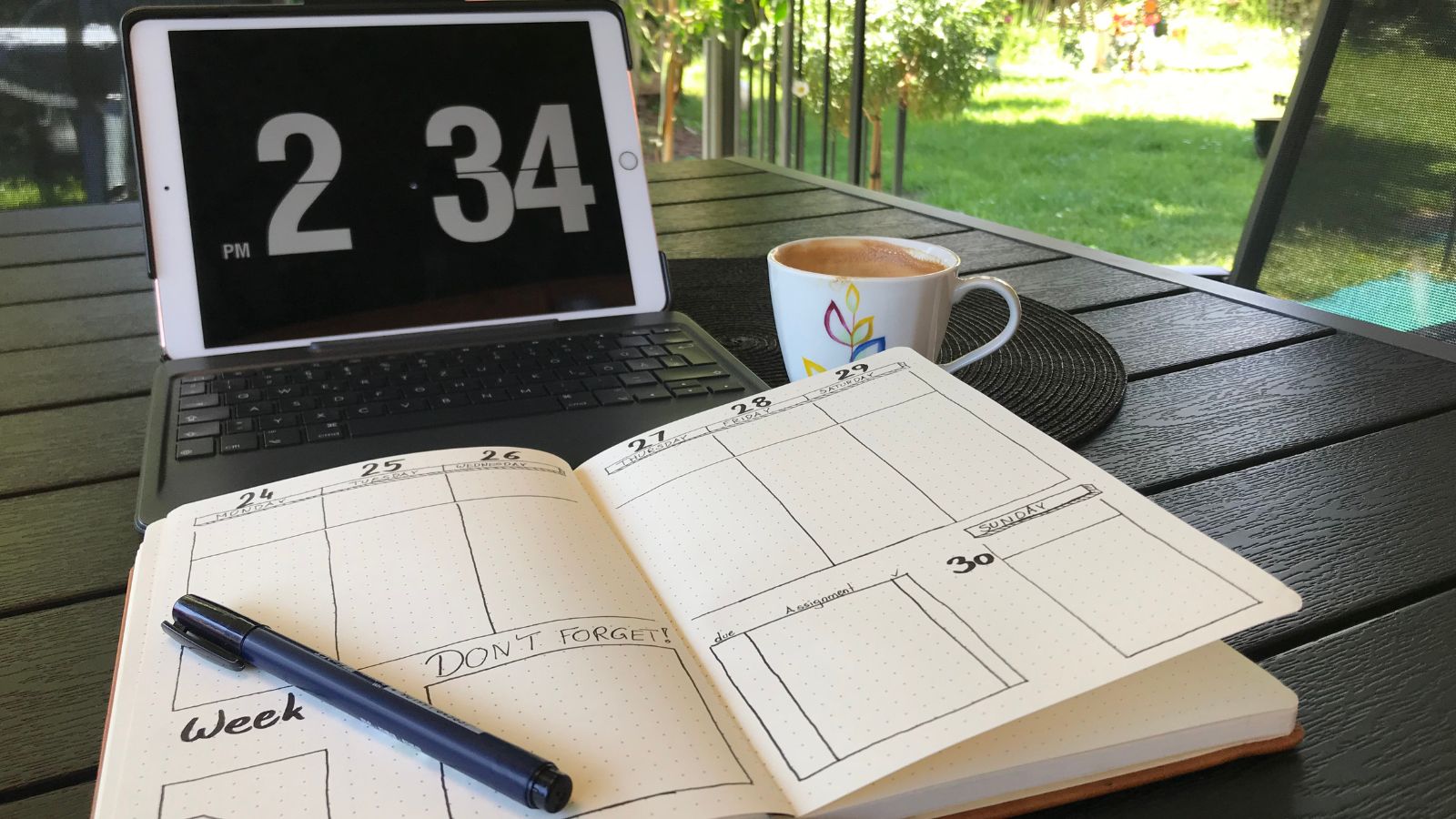
Maximize Your Productivity Through Smarter Journaling

Journaling has long been an underrated tool for enhancing productivity. In fact, many successful individuals use journaling as a method to organize their thoughts, manage tasks, and stay focused on their goals. With a well-structured journal, you can increase clarity, boost efficiency, and stay aligned with your personal and professional objectives. Here’s how journaling can become a powerful part of your productivity routine.
Why Journaling Works for Productivity
Starting your day with a clear plan can make a world of difference in how you manage your time. Journaling allows you to set intentions, map out tasks, and break down larger projects into smaller, manageable steps. By writing things down, you also reduce the mental load of trying to remember everything, which can free up energy for more creative tasks.
Morning Brain Dump

Adopting a morning “brain dump” routine is one of the most effective and popular journaling practices for productivity. It involves writing down all the ideas, thoughts, or concerns lingering in your mind. This simple exercise can clear your mental clutter, giving you a fresh start every morning.
Setting Daily Goals
By clearly identifying your top goals for the day, you can prioritize what needs to get done. Writing down these goals in your journal makes them tangible and creates a sense of accountability. As the day goes on, you can refer back to your journal to stay on track.
Planning for the Week Ahead
Weekly planning is a crucial element of any productivity routine, and journaling allows you to outline the most important tasks and projects for the week. By reflecting on upcoming deadlines and commitments, you can allocate your time and resources more effectively.
Organizing Your To-Do Lists
You may already be using to-do lists to keep track of tasks, but combining them with your journal brings an added layer of structure. Popular in the journaling world for good reason, this method lets you link your to-do lists with your goals, deadlines, and notes, making everything more cohesive and aligned.
Tracking Progress and Wins

It’s easy to get lost in the day-to-day grind and forget the progress you’ve made. Journaling helps you track both small and large accomplishments, allowing you to recognize your successes. Not only will this tracking boost morale, but it also motivates you to keep moving forward.
Visualizing Your Goals
Visualization is a powerful strategy for productivity. Helping to bring life to your ambitions, writing down your long-term goals, and visualizing them in detail within your journal can help you stay focused. Regularly reviewing these entries can serve as a reminder of why you’re doing the work and where you want to go.
Reducing Stress
Unfortunately, nobody is immune to stress, and this psychological response is a major barrier to productivity. Journaling offers a safe space to express emotions and release stress. By writing down what’s bothering you, you may gain perspective and find solutions to problems you hadn’t considered before.
Evening Reflections
Ending your day with an evening reflection is a great way to assess what went well and what could have been improved. It’s an opportunity to document lessons learned, reflect on challenges, and celebrate wins. This helps you approach the next day with a more informed mindset.
Time Management Insights
Journaling gives you a clearer picture of how you’re spending your time and makes your routine more tangible. By tracking your activities, you can identify patterns, recognize time-wasters, and make better decisions about how to allocate your time going forward.
Creating Action Plans

Whenever you’re faced with a new project or challenge, a journal can help you create a step-by-step action plan. You can break down large tasks into smaller ones, set deadlines, and assign priorities to keep everything manageable.
Combatting Procrastination
Admittedly, procrastination affects everyone at some point, but journaling is a practical way to combat it. Consistency is key here, and by regularly reviewing your goals and tasks, you keep your mind focused on the actions that need to be taken, reducing the likelihood of getting sidetracked.
Developing Consistency
Consistency is key to maintaining productivity, and as any writer knows, journaling fosters this by providing a daily or weekly structure for planning, tracking, and reviewing. Over time, you build habits that keep you on a steady path toward your goals.
Creating Workflows
Your journal can serve as a guide for building workflows. For instance, you can outline the specific steps needed to complete recurring tasks, making them more efficient each time. This system helps streamline your daily routine and increases overall productivity.
Focused Work Sessions
To improve focus, journaling can help you schedule blocks of time dedicated to deep work. By setting clear intentions for each work session, you reduce distractions and stay focused on the task at hand. Over time, this habit can significantly improve your concentration.
Cultivating Gratitude

A productivity journal isn’t just about tasks and goals. Including a daily gratitude practice can shift your mindset to focus on the positive aspects of your day. This helps maintain motivation and keeps stress levels in check.
Increasing Self-Awareness
Through journaling, you gain valuable insights into your personal and work habits. Over time, this self-awareness allows you to make informed adjustments to improve how you manage time and energy.
Enhancing Creativity
Journaling isn’t just for tasks and deadlines. It can be a space to brainstorm and think creatively. Writing down new ideas, drawing connections between thoughts, or reflecting on personal experiences can spark innovation in unexpected ways.
Flexibility in Planning

While structure is essential, it’s also important to allow flexibility. Instead of time-blocking each hour of the day, using your journal can act as a flexible tool to adapt plans as priorities change. By staying open to adjustments, you can make room for unexpected tasks without feeling overwhelmed.
Making Journaling a Daily Habit
As you integrate journaling into your routine, you’ll begin to see its long-term benefits on productivity. The habit fosters clarity, reduces stress, and keeps your goals front and center. By regularly documenting your thoughts, tasks, and reflections, you’ll be better equipped to work smarter and more efficiently.
Share this post :


11 Methods of Combining Cleaning With Journaling for Everyday Peace

How Tidying and Writing Improve Mental Health

11 Ways to Use Cleaning and Journaling as Life Tools
Subscribe our newsletter
Stay Updated with the Latest Reviews – Subscribe to Our Newsletter!
Affiliate Disclosure
As an Amazon Associate, Journaltreats.com earns from qualifying purchases.
Our website also contains other affiliate links, but our editorial content is not influenced by advertisers or affiliate partnerships. See our full disclosure.
AI Disclosure: Some elements may have been created with the assistance of AI tools.
Copyright Notice
All of the content on this website, including images, text, audio, and video, is Copyright © 2024 Journal Treats and may not be stolen, reproduced, downloaded, republished, or otherwise used without the explicit written permission of the owner of Journaltreats.com.
Except where prior permission is granted, Journal Treats reserves all rights.


